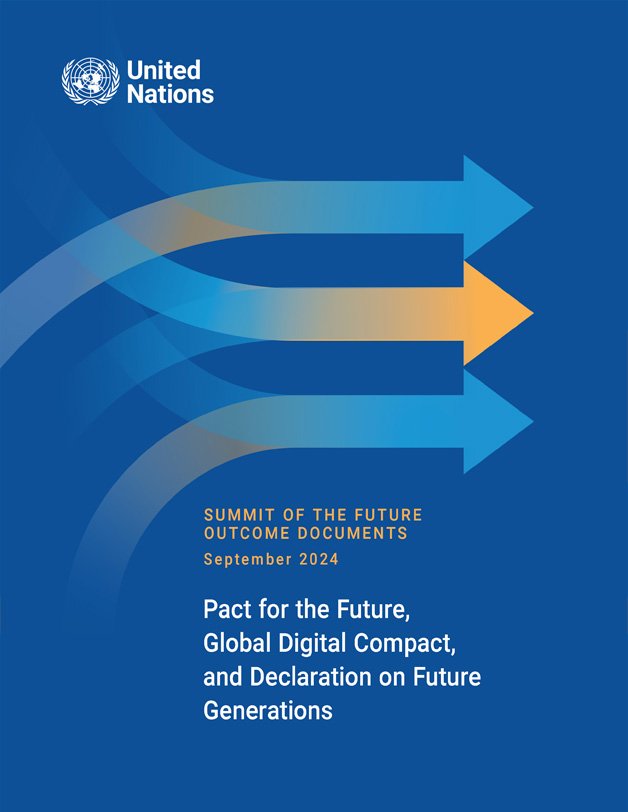
Image credit: globalalliancepr.org
Jan 31, 2025| Sustainability
The ‘Pact for the Future’ introduced by UN in September 2024 covering Sustainable Development and ESG Practices, Climate action and Resilience, Technological innovation and Digital transformation, Social inclusion and Human Rights, Impact of Global Governance and Partnerships and Tourism and Cultural Preservation will bring both challenges and opportunities for the hospitality sector. Terence Ronson of Pertlink Ltd examines their impacts to the hospitality sector and the key areas to focus on with the support of AI.
(1) Sustainable Development and ESG (Environmental, Social, and Governance) Practices
Impact: Due to hospitality sector’s heavy reliance on natural resources and local communities, further alignment with sustainability goals outlined in the pact is required.
Opportunity: The adoption of ESG frameworks could benefit the businesses from increased consumer demand for ethical and eco-friendly travel experiences and making the sector more attractive for investment and partnerships.
Key areas:
- Sustainable operations: Implement more sustainable resource management practices such as reducing water consumption, minimizing food waste and use of renewable energy.
- Supply chain transparency: Adopt sustainable and ethical sourcing including the reduction of carbon footprint of their supply chains and promoting local procurement
(2) Climate action and Resilience
Impact: The hospitality sector is vulnerable to climate-related risks such as extreme weather events, rising sea levels, and resource shortages.
Opportunity: Implementation of climate action will help the sector reduce operational costs, enhanced brand reputation and mitigate the risk of climate change related disruptions.
Key areas:
- Climate adaptation strategies: Hotels and resorts in coastal or ecologically sensitive areas need to invest in climate resilience measures such as reinforcing infrastructure or relocating critical facilities.
- Sustainability certifications: Obtaining certifications such as LEED or Green Key to remain competitive by proving the compliance with global sustainability standards.
(3) Technological innovation and Digital transformation
Impact: As the Pact emphasizes the role of technology and innovation in achieving the SDGs, digital transformation of the hospitality sector is inevitable.
Opportunity: leveraging technology can boost profitability while contributing to sustainability goals by streamlining processes and reducing resource consumption.
Key areas:
- Smart technology: Hospitality companies to adopt Internet of Things (IoT) solutions to optimize energy use, improve guest experiences, and reduce waste.
- AI and Automation: AI-driven solutions will become more prevalent in improving operational efficiency and customer satisfaction.
(4) Social inclusion and Human Rights
Impact: As inclusivity and human rights are part of the Pact, hospitality companies will be required to improve HR interventions such as labor practices, promoting diversity and contributing to social development.
Opportunity: The commitment to social inclusion will bring the benefits such as enhancing corporate image, attracting a broader talent pool, and tapping into emerging markets that value ethical practices to hospitality companies.
Key areas:
- Labor rights: hospitality sector may face pressure to improve working conditions, provide fair wages, and ensure the protection of workers’ rights, especially in developing countries.
- Diversity and gender equality: hospitality sector to ensure their employment practices foster diversity and gender equality and aligning with the pact’s emphasis on empowering women and marginalized communities.
(5) Impact of Global Governance and Partnerships
Impact: As the Pact encourages international cooperation and multilateral partnerships, new avenues will be opened for the hospitality sector to engage in global initiatives.
Opportunity: The participation in global governance initiatives help hospitality companies gain access to new markets, funding opportunities and partnerships that prioritize sustainability and ethical tourism.
Key areas
- Public – Private partnerships: opportunity to collaborate with governments and international organizations to develop sustainable tourism initiatives, eco-friendly travel solutions, and community-driven projects.
- Regulatory compliance: Global governance reforms may drive hospitality companies to comply with international standards on sustainability, labor rights, and climate policies.
(6) Tourism and Cultural Preservation
Impact: As the pact acknowledges the role of culture and tourism in sustainable development, recognizing the preservation of cultural heritage and local traditions can be key drivers for the hospitality industry.
Opportunity: Businesses embracing cultural and sustainable tourism will be better positioned to attract
Key areas
- Cultural tourism: Hotels and tour operators can develop experiences that showcase local culture, crafts, and traditions to protect and promotion of cultural heritage.
- Sustainable tourism practices: These practices are likely become a ‘global standard’ as it facilitates both minimizing environmental impact and maximizing benefits to local communities.
(Source: Terence Ronson of Pertlink Ltd cited in Hospitality News, Dec 24)
